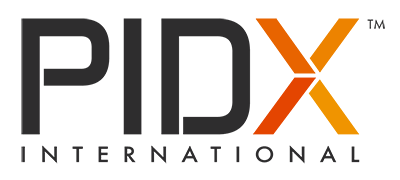Our Mission
PIDX International aims to bring the entire global petroleum industry together to develop, advance, and optimize global electronic commerce standards. We are the forum industry experts use to educate and optimize operations for the electronic marketplace.
Supporting all oil and gas segments – upstream, midstream, and downstream – PIDX has become a strategic asset for ERP solutions and global data exchange. Our members include operators (oil companies), suppliers (service companies), and technology providers who have a material interest in the development of oil and natural gas electronic business standards.
Our Approach
PIDX works with real practitioners across the petroleum industry, including downstream, midstream, and upstream, to develop global standards that deliver real industry change – far beyond improving business relationships.
Our members have a unique opportunity to connect and collaborate with partners throughout the supply chain, gain education across business lines, and reach beyond geographical regions.
Our Guiding Principals
- Focus on business-oriented objectives
- Enlist the most qualified people to lead and participate in our organization
- Act as an inclusive global standards forum
- Broadly and frequently communicate with our industry
- Leverage the work of others where possible
- Recruit and maintain a diverse membership
- Make standards available on an open and royalty free basis
High Level Facts
PIDX is made up of Oil and Gas Industry Standards leaders in the facilitation of Electronic Commerce. We develop and leverage Electronic Standards to take advantage of Industry Best Practices. In all our work, we strictly follow all rules related to Anti Trust / Anti-Competitive Legislations. PIDX (Petroleum Industry Data Exchange) was formed in 1987 with a long term remit to develop and maintain standards to enable digital business in all its forms for the whole Oil & Gas industry.
- Initially developed Electronic Data Interchange (EDI), and moved in the 1990′s to XML standards.
- Enlist the most qualified people to lead and participate in our organization
- PIDX spans the whole industry from well to filling station. There is a continuous effort in maintaining an up-to-date refined products code list.
- PIDX has a product classification, schemas and taxonomy with over 4000 industry product and service noun/modifier templates, and a Data Dictionary with eBusiness terms.
- There are no competing eBusiness standards to PIDX in Oil & Gas, we are the only ones!
PIDX Develops
- Royalty free standards licensed to all on an open basis pursuant to the End User License Agreement
- Digital Business Standards for Industry Trading Partners
- PIDX Standards are for Products and Services, Secure Data Exchange, Transaction Documents, Dictionary, Classification Guidelines and Business Processes
Our History
The American Petroleum Institute had operated a standards committee called Petroleum Industry Data Exchange, or PIDX since 1987. That committee was referred to as the PIDX Committee. The PIDX Committee developed and published standards to facilitate adoption of digital business in the oil and gas industry.
In 2010, the American Petroleum Institute decided to stop hosting the operations of the PIDX Committee. The American Petroleum Institute viewed the development of digital business standards as a lower priority in the American Petroleum Institute’s core mission of advocating for the petroleum industry. However, the American Petroleum Institute recognized the value to the industry from the PIDX Committee’s standards activities and so the American Petroleum Institute sought requests for proposals from interested standards bodies and other entities that could best carry out the nonprofit mission of the PIDX Committee.
A new corporation formed by members of the PIDX Committee, called Petroleum Industry Data Exchange, Inc. (PIDX, Inc.), won that selection process and was selected by the American Petroleum Institute to continue the mission of the PIDX Committee.
PIDX Purpose
PIDX serves all segments of the oil and natural gas industry – upstream, midstream, and downstream. The upstream segment encompasses oil and gas exploration and extraction, from the reservoir and well to the refinery gate. The midstream segment encompasses treatment, processing, storing, transporting, and marketing. The downstream segment encompasses the refining of oil and gas products and eventual sale to consumers.
These two sectors of the energy industry, operating all over the world in multitudes of languages, environments, and cultures, involve highly complex business processes and practices, which makes the implementation of uniform digital business standards so important to the industry yet very difficult and time-consuming. Bringing solutions to those problems is the purpose of PIDX.The mission of PIDX is to develop and publish technology, information and business process standards that allow the implementation of digital business in the energy industry on a worldwide basis.
PIDX provides a forum for all industry participants to participate in the development of business processes and technology standards that facilitate seamless, efficient digital business within the petroleum industry and it’s a trading community. These actions promote the common business interests of its members and the petroleum industry as a whole by developing and making such standards available to all, improving the capability of each member of the petroleum industry and its trading community to do business with each other.PIDX membership consists of operators (oil companies), suppliers (service companies), technology providers, and other organizations with a material interest in the development of oil and natural gas digital business standards.
PIDX will develop standards through the use of committees that consist of parties interested in the development of the standard. Interested parties do not have to be a PIDX Member to participate in the development of the standard. PIDX Members will have the final vote on the approval of standards to be published by PIDXPIDX makes these standards available to all interested parties in the petroleum industry and it’s a trading community free of charge.
PIDX also conducts membership meetings, workshops, educational conferences and related events globally so that members and other interested parties can discuss emerging standards and collaborate on the development of new standards.PIDX will have an independent board comprising representatives of members who were members of the PIDX Committee. PIDX will be controlled by its Members, who are expected to be the same companies that participated in the PIDX Committee as well as new members.

